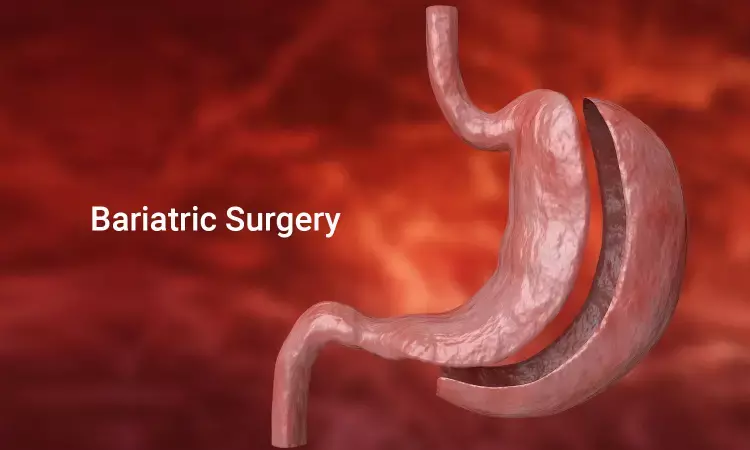- Home
- Medical news & Guidelines
- Anesthesiology
- Cardiology and CTVS
- Critical Care
- Dentistry
- Dermatology
- Diabetes and Endocrinology
- ENT
- Gastroenterology
- Medicine
- Nephrology
- Neurology
- Obstretics-Gynaecology
- Oncology
- Ophthalmology
- Orthopaedics
- Pediatrics-Neonatology
- Psychiatry
- Pulmonology
- Radiology
- Surgery
- Urology
- Laboratory Medicine
- Diet
- Nursing
- Paramedical
- Physiotherapy
- Health news
- Fact Check
- Bone Health Fact Check
- Brain Health Fact Check
- Cancer Related Fact Check
- Child Care Fact Check
- Dental and oral health fact check
- Diabetes and metabolic health fact check
- Diet and Nutrition Fact Check
- Eye and ENT Care Fact Check
- Fitness fact check
- Gut health fact check
- Heart health fact check
- Kidney health fact check
- Medical education fact check
- Men's health fact check
- Respiratory fact check
- Skin and hair care fact check
- Vaccine and Immunization fact check
- Women's health fact check
- AYUSH
- State News
- Andaman and Nicobar Islands
- Andhra Pradesh
- Arunachal Pradesh
- Assam
- Bihar
- Chandigarh
- Chattisgarh
- Dadra and Nagar Haveli
- Daman and Diu
- Delhi
- Goa
- Gujarat
- Haryana
- Himachal Pradesh
- Jammu & Kashmir
- Jharkhand
- Karnataka
- Kerala
- Ladakh
- Lakshadweep
- Madhya Pradesh
- Maharashtra
- Manipur
- Meghalaya
- Mizoram
- Nagaland
- Odisha
- Puducherry
- Punjab
- Rajasthan
- Sikkim
- Tamil Nadu
- Telangana
- Tripura
- Uttar Pradesh
- Uttrakhand
- West Bengal
- Medical Education
- Industry
Bariatric surgery more beneficial in patients with severe insulin-resistant diabetes: Lancet

France: A recent study in the journal Lancet Diabetes & Endocrinology found that metabolic surgery gives better outcomes in patients in the severe insulin-resistant diabetes (SIRD) subgroup versus those having obesity-related diabetes or severe insulin-deficient diabetes. The better outcomes were seen both in terms of type 2 diabetes remission and renal function with no additional surgical risk. Data-driven classification might be helpful to refine metabolic surgery indications.
To personalize anti-diabetic treatment according to phenotype, a novel data-driven classification of type 2 diabetes has been proposed. One subgroup, SIRD is characterized by mild hyperglycemia but marked hyperinsulinemia, and is tied to increased diabetic nephropathy risk. Violeta Raverdy, European Genomic Institute for Diabetes, Lille, France, and colleagues hypothesized that patients with SIRD could particularly benefit from metabolic surgery.
For this purpose, the researchers retrospectively related the newly defined clusters with the response to metabolic surgery in patients with type 2 diabetes from independent cohorts in Brazil (the metabolic surgery cohort of the German Hospital of San Paulo, n=121; participants underwent Roux-en-Y gastric bypass between April 1, 2008, and March 20, 2016) and France (the Atlas Biologique de l'Obésite Sévère [ABOS] cohort, n=368; participants underwent Roux-en-Y gastric bypass or sleeve gastrectomy between Jan 1, 2006, and Dec 12, 2017). Type 2 diabetes remission and improvement of estimated glomerular filtration rate (eGFR) were the study outcomes.
Following were the study's salient findings:
· At baseline, 34 (9%) of 368 patients, 314 (85%) of 368 patients, and 17 (5%) of 368 patients were classified as having SIRD, mild obesity-related diabetes (MOD), and severe insulin-deficient diabetes (SIDD) in the ABOS cohort, respectively, and in the São Paulo cohort, ten (8%) of 121 patients, 83 (69%) of 121 patients, and 25 (21%) of 121 patients were classified as having SIRD, MOD, and SIDD, respectively.
· At 1 year, type 2 diabetes remission was reported in 26 (81%) of 32 and nine (90%) of ten patients with SIRD, 167 (55%) of 306 and 42 (51%) of 83 patients with MOD, and two (13%) of 16 and nine (36%) of 25 patients with SIDD, in the ABOS and São Paulo cohorts, respectively.
· The mean eGFR was lower in patients with SIRD at baseline and increased postoperatively in these patients in both cohorts.
· In multivariable analysis, SIRD was associated with more frequent type 2 diabetes remission (odds ratio 4·3), and an increase in eGFR (mean effect size 13·1 ml/min per 1·73 m2).
"Patients in the SIRD subgroup had better outcomes after metabolic surgery. This was seen both in terms of type 2 diabetes remission and renal function, with no additional surgical risk," wrote the authors. "Data-driven classification might help to refine the indications for metabolic surgery."
Reference:
The study titled, "Data-driven subgroups of type 2 diabetes, metabolic response, and renal risk profile after bariatric surgery: a retrospective cohort study," was published in the journal Lancet Diabetes & Endocrinology.
Dr Kamal Kant Kohli-MBBS, DTCD- a chest specialist with more than 30 years of practice and a flair for writing clinical articles, Dr Kamal Kant Kohli joined Medical Dialogues as a Chief Editor of Medical News. Besides writing articles, as an editor, he proofreads and verifies all the medical content published on Medical Dialogues including those coming from journals, studies,medical conferences,guidelines etc. Email: drkohli@medicaldialogues.in. Contact no. 011-43720751


